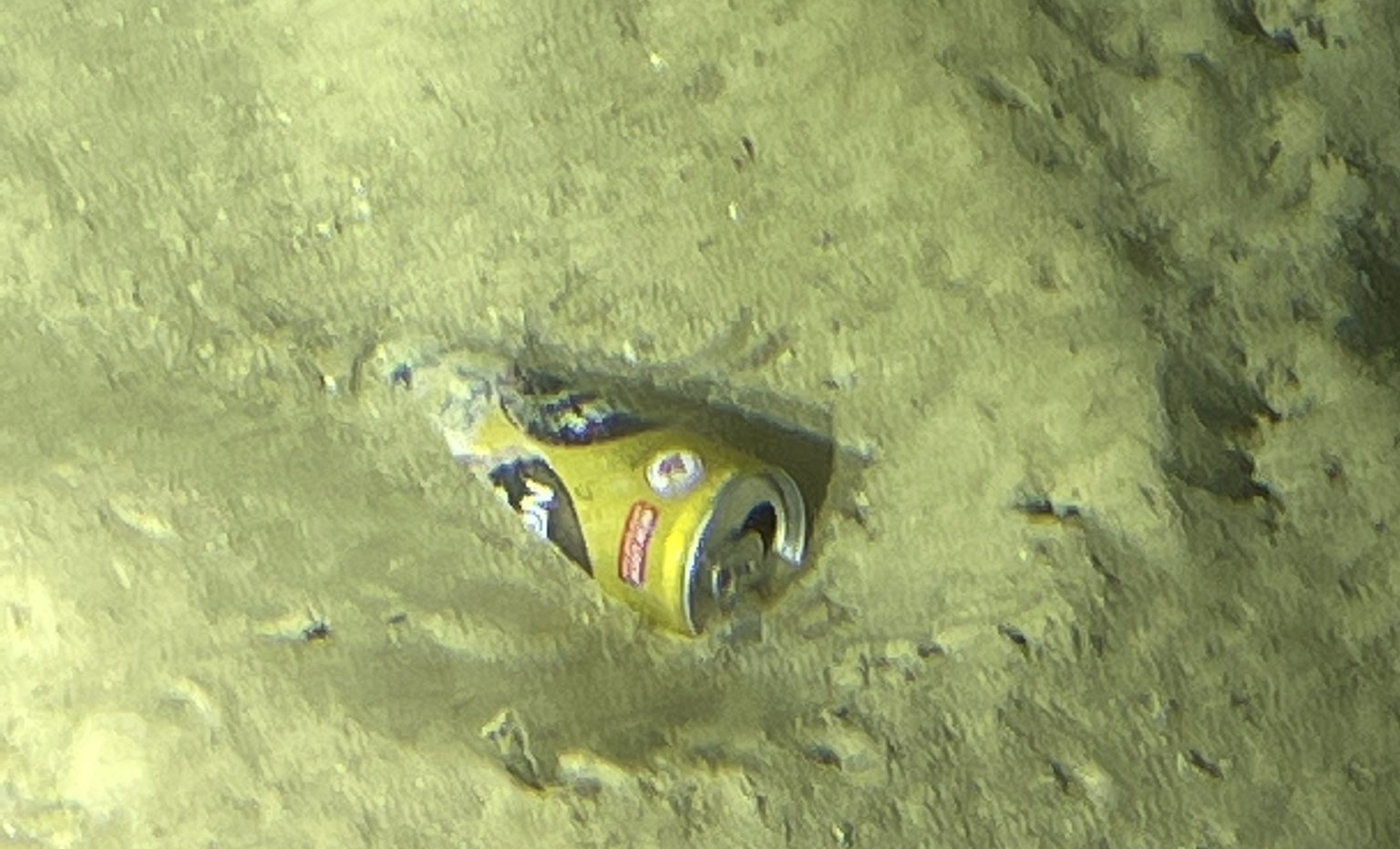Minister of Environment, Climate Change and Technology, Aminath Shauna, visited the Nekton Maldives Mission and went on a dive on the Omega Seamaster II submersible, to a depth of 270m.
Following her dive she posted numerous underwater pictures on her Twitter account including one very intriguing picture of a Nescafé can half buried at the bottom at 250m.
While aluminum cans have been a favored alternative for plastics, all cans these days are colored with logos to make sure branding is seen by the public. This branding is made of toxic inks and are also lined with a very thin plastic exterior meaning that the humble aluminum can is not 100% aluminum. It contains plastic which we are aware that every piece of plastic that has ever been created still exists in some form.
Aluminum cans can be recycled and be back on the shelf in as little as 6 weeks but takes around 250 years to decompose. However, with the current level of waste management and recycling in Maldives and around the world, more than 30% of it is not recycled and ends up in landfills or the oceans.
One of the main purposes of the Nekton Maldives Mission taking place between 4 September and 7 October is to enable the Maldivian Government to develop conservation and sustainable development policies, so that the oceans continue to protect and provide for the Maldivian people.
The mission is deploying two of the most advanced human-occupied submersibles, robotic and autonomous systems, and more than a dozen research technologies to systematically survey of ocean life in the Maldives, from the surface to 1000 meters deep.
Considering that this is the first time Maldivian waters below 30 meters are being surveyed, the government should consider further mitigation and management of ocean pollution caused by Maldives itself and by the rest of the world due to which our biggest natural resource might face inevitable damages.
Given that Maldives depends on the ocean for tourism and fisheries, the two largest industries of the country, the issue of marine pollution needs to be comprehensively addressed. Government of Maldives needs to plan out strategies to develop and strengthen the recycling mechanisms especially through collaboration and partnerships with producers.
As aluminum is one of the easiest materials to recycle as recycling does not degrade its quality. While major amount of aluminum is lost to landfills and oceans, it can can be improved by post-consumer recycling programs.





